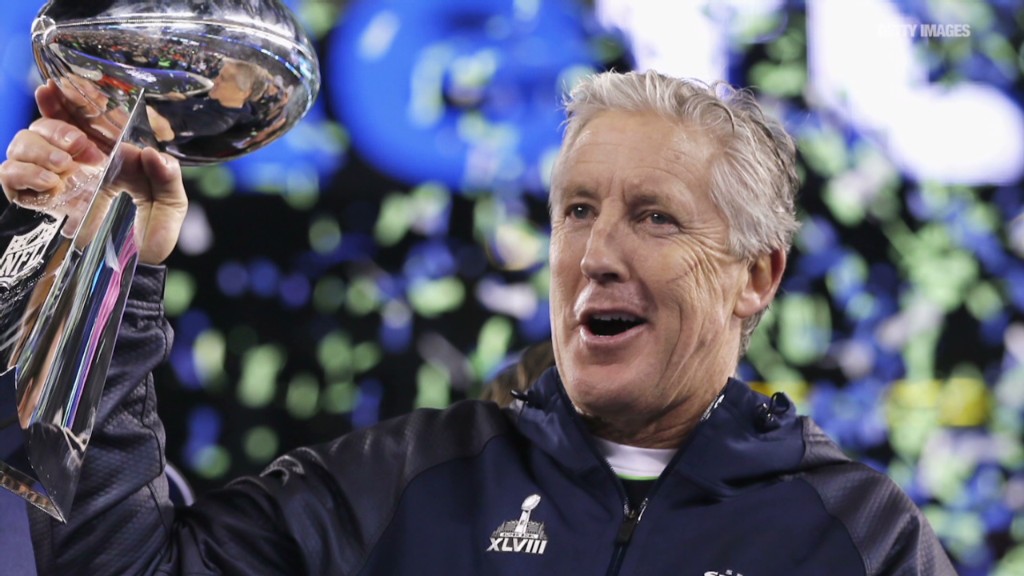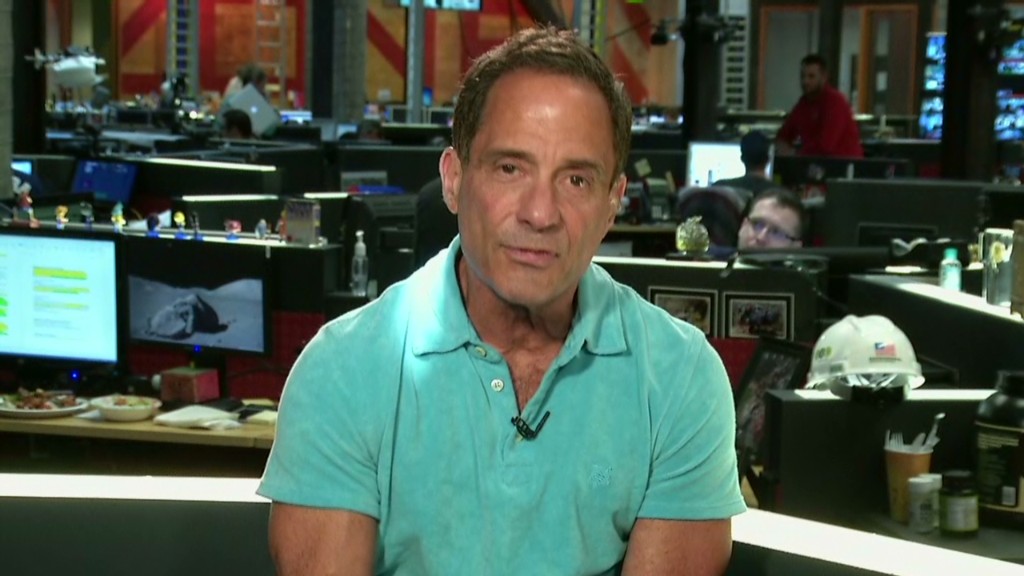
The video published by TMZ of Ray Rice punching his now-wife in an Atlantic City elevator has been met with an indefinite suspension of Rice, condemnation of the NFL commissioner Roger Goodell, and disgust by many in the media world. And for the television networks that have close ties to the NFL, there may be another feeling as well: discomfort.
Anytime the NFL is the story, the networks' coverage of the story is closely watched. Why? Because their news divisions have to cover the news -- but their parent companies have to protect their multi-billion-dollar investments in football.
This tension has been on display all week on CBS, the network that had its first-ever telecast of "Thursday Night Football" on Thursday night, with the Pittsburgh Steelers playing Rice's former team, the Baltimore Ravens.
CBS paid a reported $275 million to split this fall's Thursday night rights with the NFL Network, the league-owned cable channel that previously carried the games exclusively. (If both sides are happy at the end of this season, the arrangement could become longer-term and more lucrative for both, with a heftier fee for the NFL and higher advertising rates for CBS.)
Related: NFL: Richer than ever, despite controversy
Early in the week, CBS Sports chairman Sean McManus told reporters that the Rice scandal would be addressed "early in our show, in the first segment, when we come on the air at 7:30."
Indeed, at 7:30 p.m. Thursday, CBS Sports host James Brown almost immediately handed the broadcast over to "CBS Evening News" anchor Scott Pelley, who briefed viewers on the day's developments.
The producers scrapped an opening video featuring Rihanna and Don Cheadle and a comedy segment so that they'd have more time to cover the news.
Following Pelley's update, "CBS This Morning" co-host Norah O'Donnell was on the sideline in Baltimore with Brown. On Tuesday O'Donnell beat out many other journalists for the first interview with Goodell.
Related: Ray Rice cut out of Madden NFL video game
O'Donnell was widely praised for her direct, almost prosecutorial questions -- yet there were numerous questions, some asked by competitors, about whether Goodell agreed to talk to her because CBS was set to televise Thursday's game.
CBS News, for the record, said there was no connection between the parent company's NFL deal and the Goodell interview.
On the flip side, it was TMZ -- not an NFL rights-holder like ESPN or CBS -- that obtained the Rice video that is now the center of the controversy.
"The fact is that TMZ got the video. Why didn't others?" said Kelly McBride, vice president of academic programs at the Poynter Institute.
That may partly be because TMZ is willing to pay for audio and video, a practice frowned upon by many other news organizations.
Nonetheless, McBride, who formerly worked as an external ESPN ombudsman, said the Rice case highlights the difficulties that networks like ESPN have in separating themselves from sports leagues.
Related: Ray Rice likely to keep $25 million
"This is a much different story than if the Super Dome was ready for the Super Bowl or even if the NFL is ignoring the data on concussions... This is a story about the culture of the NFL," McBride said. "It's hard for journalists because they are a part of the NFL culture."
But TMZ is not. "Surely, in the brave new world of the online tabloids, few journalistic coups have enjoyed as much attention — or exploded with as much energy — as TMZ Sports's Ray Rice scoop," Lloyd Grove of The Daily Beast commented on Thursday.

ESPN, the biggest sports channel of them all, has chased TMZ's scoop all week and followed up with some groundbreaking stories of its own.
It has a $15.2 billion contract with the NFL that extends until 2021, but it also has investigative reporters who treat the league the way dogged political reporters treat the White House.
The network is adamant that its business priorities do not intersect with its news pursuits.
"We have a 'church and state' approach as it relates to our company's separate business and news operations, and the leagues we work with understand ESPN's emphasis on journalistic integrity," an ESPN spokesman said. "The direction we provide our commentators is to be fair and objective and to give their opinions."
Case in point, ESPN's Keith Olbermann first called for Goodell's resignation in August.
Richard Deitsch, who covers sports media for Sports Illustrated, commented on Twitter this week that he believes network partners are generally "soft on the NFL," but that ESPN is the "most journalistic" of the group that also includes CBS, Fox and NBC.
On Thursday Deitsch asked how much pressure CBS's McManus felt from the league about its Thursday night coverage of Goodell, and McManus said "none."


